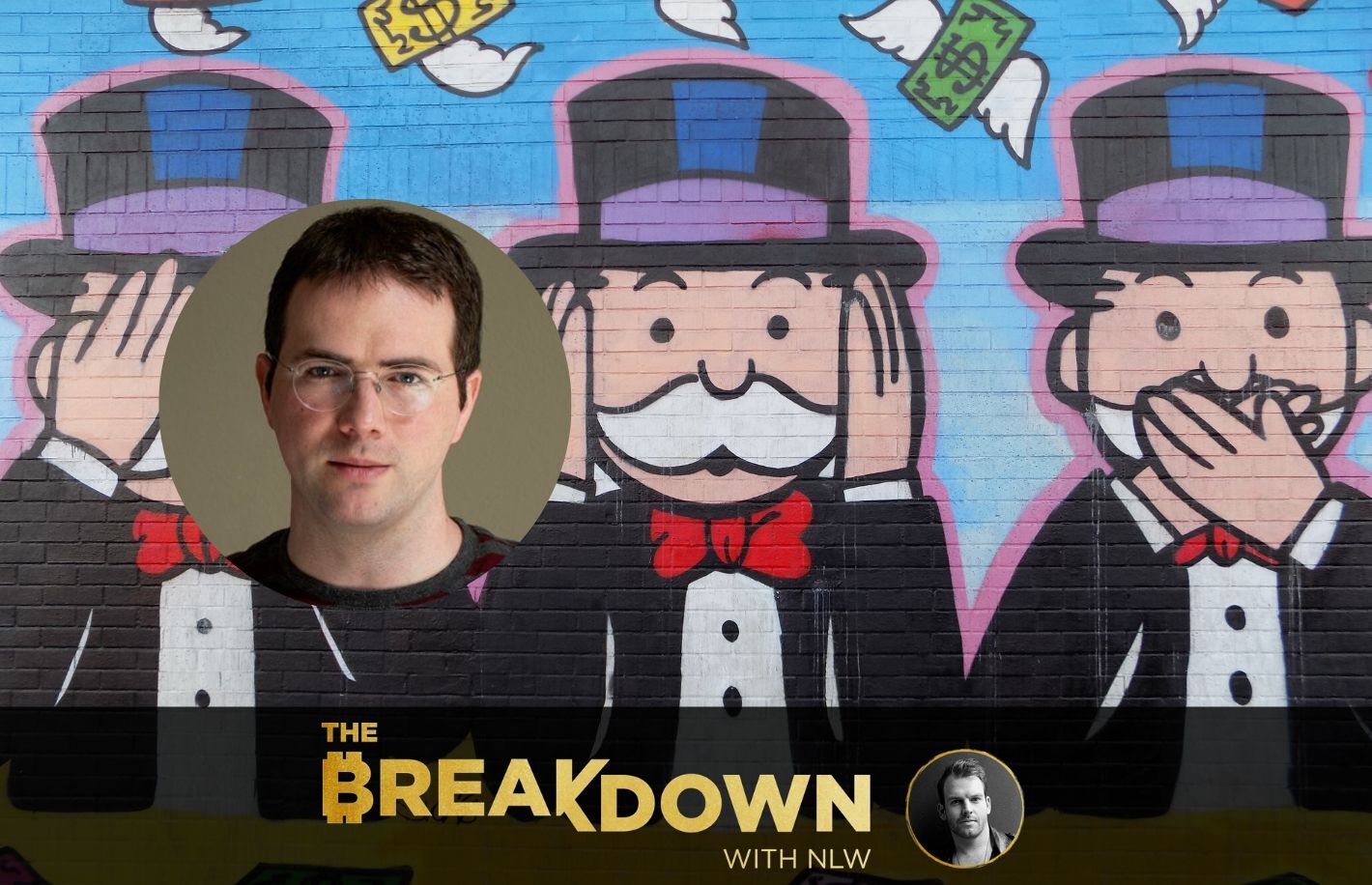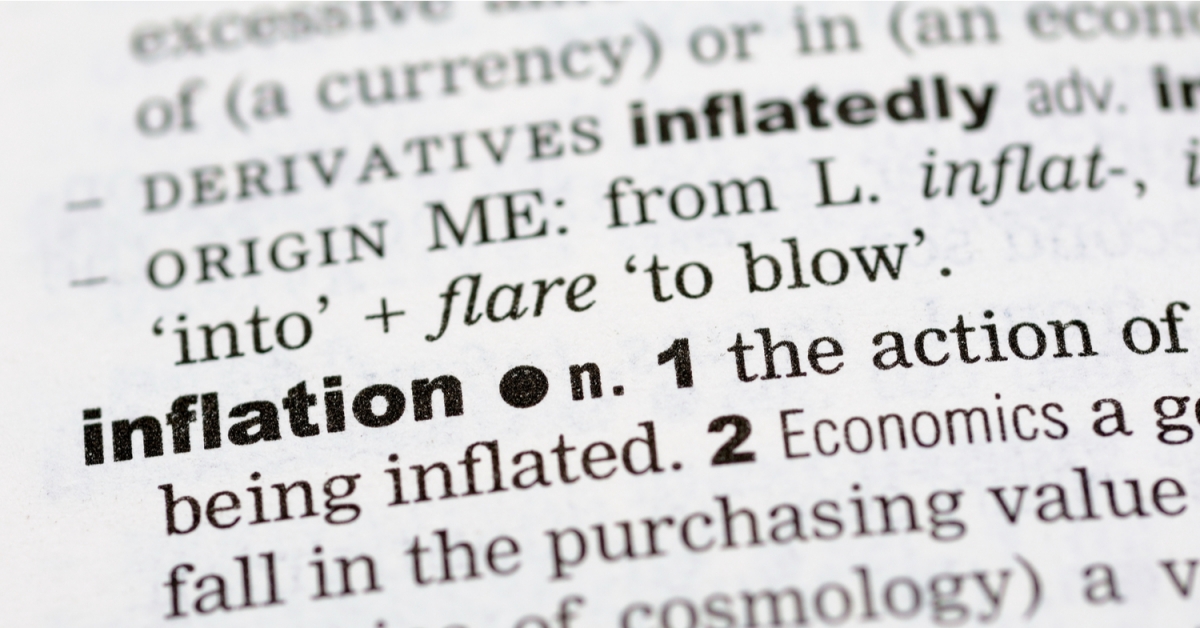PODCAST: Nic Carter on Bitcoin’s Evolution as a Safe-Haven Asset

“If you are fleeing a country with just the clothes on your back and you want to take your savings with you, bitcoin is an excellent kind of safe haven,” said Nic Carter, founding partner of Castle Island Ventures.
“You’re happy to tolerate some of that exchange risk for the duration of the period in exchange for being able to store your savings in 12 phrases in your brain,” Carter added, continuing:
“From that perspective, it’s a great safe haven. But for a global macro allocator that cares about correlations and volatility, maybe it’s not as good, but it’s a lot of things to different people. It’s kind of a heterogeneous asset.”
Carter spoke with CoinDesk for one of the inaugural episodes of Bitcoin Macro, a pop-up podcast featuring the speakers and themes of CoinDesk’s upcoming Invest: NYC conference on Tuesday, Nov. 12.
Listen to the podcast here or read the whole transcript below.
The last six months have seen a growing dialogue between the bitcoin industry and the larger global macro community. No longer written off as some ignorable niche, increasingly people are asking: Is bitcoin a macro asset? Is it a safe-haven asset? How will it perform in the next recession?
Nic Carter is one of the most broad and heterodox thinkers in the bitcoin space. He learns in the open, shares what he thinks (whether it matches what the broader community wants him to think), is willing to change his mind, and always comes back to data.
In this episode, Coindesk’s strategy chief Nolan Bauerle chats with Carter about:
- Why bitcoin is undeniably related to the larger political and economic climate.
- Why the emergence of Libra piqued the interest of central banks and sovereigns in bitcoin and the cryptocurrency industry more broadly.
- Why bitcoin’s status as a safe haven asset is highly correlated to the specific political and economic context of the holder.
- Why the fact that everyone is expecting a recession means that we might not get a traditional recession.
- Japan as a rebuttal to the idea that the stock market always goes up
- The type of behind-the-scenes questions previously crypto-green institutions are starting to ask about bitcoin data, valuation and more.
- The power inherent in the fact that anyone with an internet connection can start to exit their local currency system.
- Why the realized capital of bitcoin is at an all-time high, even if market cap is far off.
Nolan Bauerle: Welcome to Bitcoin Macro, a pop-up podcast produced as part of the CoinDesk Invest New York conference in November. I’m your host, Nolan Bauerle. Both the podcast and the event explore the intersection of Bitcoin and the global macroeconomy with perspectives from some of the leading thinkers and finance, crypto and beyond.
I’m here with Nic Carter, the founder of the data site Coin Metrics, a VC with Castle Island Ventures, a founder of that firm. And who was also Abby Johnson’s personal advisor on Bitcoin for quite a while before he stepped out into the entrepreneurial game. So everyone in the industry knows you, Nic. So I’m not going to spend too, too much time on your background other than that. This series of podcasts that CoinDesk is running in its lead up to Consensus Invests in November, seeks to bring some of our speakers together to answer a few questions about Bitcoin in the world today. These questions are really focused around its behavior on the global scene and in the global economy. And Nic, who has been working at this stuff for quite a while now, is one of the best people we could possibly get to participate in this podcast. So I’ll jump right in with the first question, Nic. Is Bitcoin a macro asset?
Nic Carter: Well, first of all, thanks for having me on the show, Nolan. I really appreciate that. On the macro asset front, I guess it really depends on your definition of sort of a global macro asset. To the extent that global macro is a strategy that involves kind of forecasting geopolitical trends and trading on that basis. I would say, absolutely. Some people would try and say, “Well Bitcoin isn’t big enough to be considered eligible to be a macro asset, which I think is a little silly. If you look at the, there’s a really great set of data compiled by the guys over at Crypto Voices and they try and measure Bitcoin against other base monies, not against M3 or M2, but against just the base money.
And they find that it’s something like the 11th largest compared to sovereign currencies and gold and silver. By their measure, Bitcoin is the 11th largest kind of base money in the world. So I would say, it’s absolutely something of significance, even in its relatively small state and I think it totally, it’s buffeted by sort of political wins. And it’s also potentially, it’s emergence is also a response to some things that are going on in the world with central banks. So while it doesn’t really have any meaningful correlation to really any other financial assets out there. I would say it’s totally a macro asset.
Nolan Bauerle: If I was to sort of translate what you’re saying, from my point of view, you could really swap out the words macroeconomics for politics. I mean they’re quite similar. We’re really talking about the politics, right? And there’s no doubt that Bitcoin is political.
Nic Carter: For sure.
Nolan Bauerle: Which I suppose, de-facto raises it up to the level of being a macro asset because that’s the whole point.
Nic Carter: It’s sort of always had political goals, but sovereigns haven’t really cared about it until now. So if anything, that’s the interesting thing about the year 2019. Maybe the emergence of Libra as well really piqued the interest of a lot of central banks. And they started to realize that cryptocurrencies and non-sovereign currencies were actually a meaningful trend and we’re not going to go away anytime soon.
Nolan Bauerle: And bringing us back to the world of private issuance of money that was so prevalent before the federal reserve in 1912 and was really common in the United States for 100 years before that.
Nic Carter: Absolutely, yeah, private money is and was the historical default and it’s only been a relatively short period of time that we’ve been on this latest kind of monetary regime. So you could say this is actually kind of a reversion to the mean.
Nolan Bauerle: So with all of this, I guess you could say uncertainty. We’ve seen bitcoin behave in certain ways. So we can define it as a macro asset, fine because of what’s around it, but its behavior really would push it into the threshold of whether or not it’s a safe haven asset. From its behavior, have you seen it behave as a safe haven asset, given all of the sort of tribulations we’re seeing today?
Nic Carter: Safe is probably in the eye of the beholder or the eye of the holder, I guess, to make a labored pun. So assets I would consider traditional safe havens are like treasuries, maybe gold, maybe the Swiss Franc, actual cash, the dollar, most of those things are pretty stable. Bitcoin’s realized volatility is many multiples of the most volatile of all those, which is gold. So just from a data perspective, it’s probably not behaving in purchasing power terms like the other traditional safe-haven assets. So my official answer on that is, we don’t have enough data yet. Bitcoin’s only really been financialized for a couple of years. Insufficient data for a meaningful answer.
Nolan Bauerle: Safe haven to those who have no other recourse, I suppose.
Nic Carter: Yeah, so that was going to be the second part. If you are fleeing a country with just the clothes on your back and you want to take your savings with you, Bitcoin is an excellent kind of safe haven and you’re happy to tolerate some of that exchange risk for the duration of the period in exchange for being able to store your savings in a 12 phrase, in your brain. From that perspective, it’s a great safe haven. But for a global macro allocator that cares about correlations and volatility, maybe it’s not as good, but it’s a lot of things to different people. It’s kind of a heterogeneous asset.
Nolan Bauerle: We’ve I guess you could say rumors of a real recession coming to America. We’ll see if it actually plays out. But of course, Bitcoin was predicted by a lot of people within the Bitcoin world to be a hedge against that. Do you think that Bitcoin can behave in such a way given conditions around our a recession or do you think it could start mimicking other assets in that environment?
Nic Carter: It’s definitely hard to know. My intuition is that as it gets more integrated into financial markets, it’ll eventually come to be more correlated to traditional financial assets. Right now we realize correlations are still pretty close to zero. Although there has been some indications over the last six, 12 months that it’s co-moving with gold to some small degree. Bitcoin is not at its terminal stage of growth yet. It’s still, I would say fairly early in its life cycle. So it’s just growing endogenously and it will continue to do so, in my opinion. So the real price drivers are almost to some degree, internal.
What I’m trying to say really is that I think the main things that cause bitcoin’s price to grow is very much a function of its stage of development and the various thresholds it’s hitting, in terms of growth and infrastructure, adoption. I don’t think its price is really going to be driven much by macro factors. For a while, whether it will outperform in a recession, is very hard to know. Some people have talked about an inflationary versus deflationary recession and it sort of depends what kind we get.
It’s plausible to me that the US just undergoes kind of a Japanification, whereby you have extremely loose monetary policy, even looser than we have today. In an effort to kind of stave off any downturn whatsoever. And where the stock market turns into a political utility, if it hasn’t already. And we just have an extended period of stagnation. That may well be the case, I know everyone’s expecting a recession right now, which makes me think maybe we’re not going to get a classic recession.
Nolan Bauerle: I sort of have fallen into this speculative point in this podcast twice in a row now. But I’ve always been of the mind that the Satoshi Nakamoto pseudonym was really to have the type of experience or authority to say, “Look what happened in Japan in the 1990s.” And if you go back to the context of 2008 and what was going on then. Sort of a finger wag to say, “Look, it’s now here.”
You’ve copied those exact conditions and you will now be perpetually stuck with a broken monetary policy lever and you can’t pull on it anymore. And so you’re going to have to print money and you’re going to have to do along the lines of what you just mentioned, a Japanification of your economy. Is that what you’ve seen over the last 10 years? Is that where you see things continuing to go?
Nic Carter: I would be shocked if the Fed did anything other than continue on its current trajectory, which does sort of indicate that we would be going for more of an Abenomics, Japanese approach to a demographic slow down and just the end of the high growth era. It’s really funny though, I haven’t heard that theory for the Satoshi pseudonym before. It’s pretty good though.
Nolan Bauerle: Yeah, I remember reading it somewhere, honestly in 2012 or 2013 and I have never been able to find the source. But maybe I dreamt it. I don’t know where I got it from, but I have been operating under that assumption since 2012. So maybe I’m crazy, I don’t know.
Nic Carter: I like the Japan case study, though, because it’s always a good rebuttal to the people that claim that the stock market always goes up in real terms. There’s this real cult of passive investing with the idea that the stock market will just reliably return 8 percent nominal, 6 percent real every year in perpetuity. I think that’s asinine. And if you look at the Nikkei, I think it peaked in something like 1985 maybe and you just about broke even not too long ago if you’d held the Nikkei from 85 to present, which is a great rebuttal to this notion that growth is permanent and the stock market always goes up.
Nolan Bauerle: And there are some pretty troubling qualities of the, let’s say traders and investors using then Nikkei, it’s not as deep as it once was, that’s for sure.
Nic Carter: And the BOJ owns a significant attraction as well, which is like, it seems to be a total distortion of the market.
Nolan Bauerle: Mm-hmm (affirmative), Mm-hmm (affirmative), to make sure it keeps rising.
Nic Carter: Yeah, it’s a market for these utilities.
Nolan Bauerle: So, Nic, you’ve had the pleasure and I think the good opportunity earlier in your career to spend a lot of time with I guess what we consider real Wall Street players, really the mainstream financial world was kind of where you got your start in this. Definitely working on cryptocurrencies, but within that environment at your time at Fidelity. And I’m wondering now in your position with the VC that you founded, if you still are able to gather the narrative that the mainstream financial world has around Bitcoin and if you’ve noticed any change in the last six months.
Nic Carter: I think Fidelity was probably a special case in that they were very heterodox in their thinking, relative to the kind of traditional Wall Street firms. I was very, very lucky to start my career there or my second career maybe or my financial career there. They were already primed to be super open-minded to cryptocurrency when I joined because they’d spent several years, starting in 2014, educating themselves on the industry, on Bitcoin. And to some degree, I think all of the big firms, all of the big financial firms that engage with this stuff need to go through that fairly long cycle of learning before they’re ready to sort of productively engage.
And whilst they’re still in the midst of that, you see things like these permission blockchain initiatives, which don’t seem particularly interesting to me at least. So my experience is a little bit colored by having been dropped into that already very open-minded environment. But I try and keep my finger on the pulse and talk to my friends that work with hedge funds, traditional allocators. I will say there’s been a bit more openness to cryptocurrencies as an asset class. This is also been the experience of the folks at Coin Metrics and very close to, they’re noticing traditional institutions that aren’t publicly known to have any allocation or engagement with cryptocurrency at all.
They’re starting to ask about the data. They’re trying to get smart about how to value bitcoin or at least what maybe the drivers of its price are or what the usage of the network is and other kinds of top cryptocurrencies. So I definitely have noticed a bit of a shift. I think in 2017, institutions for the most part, were very unwilling to engage. There was the big issue with custody, market structure wasn’t fully understood and there’s still a lot of regulatory questions.
Nolan Bauerle: And a lot of assets to be careful about.
Nic Carter: Of course, yeah and I mean we actually haven’t seen much of that uncertainty resolved because the SEC has been really standoffish in terms of doing anything about the ITOs. A few of those boxes have been checked in the last couple of years. And I think also in 2017 there was a perception, a correct perception, that it was a heavily retail-driven market and no one really wants to be buying the perceived top, in a market that’s very retail-driven. And I think that’s changed as well. So there’s kind of a growing awareness, I think a lot of what the Wall Street institutions are doing these days is a lot more definitive in terms of acknowledging that cryptocurrencies are real and here to stay.
I also think Libra’s announcement kind of moved the needle a lot. People really take Facebook seriously and Facebook, for all their flaws, were very earnest in their desire to create a new unit of account, a new non-state money, even if it looks to be rather centralized and problematic in some ways. But the fact that they had been messaging that they would be piggybacking on the infrastructure, which has been built for cryptocurrencies over the last decade, that kind of validates what we’ve been doing here, to some degree. Even if it’s a corporation that I’m not a huge fan of, which is Facebook.
Nolan Bauerle: But it certainly ionized or has the potential to ionize a huge swath of the global population into the Bitcoin world. So I think that, that definitely got a lot of people paying attention.
Nic Carter: Totally, I think the jury’s still out on whether Libra would be a net good or not if it launched. If there were some provisions to preserve user privacy, it could well be a net good. I know that’s going to be a bit of a controversial opinion, but if given the choice to hold your savings and like the Indian rupee or the Nigerian naira or mostly dollar-backed Libra basket, which undoubtedly would preserve purchasing power better.
A lot of people would choose the latter and I think the effective outcome of that would be to kind of dollarize a lot of these developing world countries. Which is actually sort of hostile to the local governments and the local currencies. So that’s another reason why I’m skeptical Libra would actually launch. But it’s always nice to have another option, whether that’s a somewhat permission coin like Libra or a preferable, in my view, something like Bitcoin.
Nolan Bauerle: But certainly it goes back to what you mentioned at the very beginning about the private money sort of reentering the scene and becoming the norm again. I mean, isn’t that what it’s all about? Isn’t it about that? Maybe this power of minting money and borrowing and all that. Maybe it’s inappropriate in general, which is what they were talking about back in 1912 when the fed was set up anyway. I mean those were the conversations they were having then. This power should not be given to politicians, who can’t see past their reelection.
Nic Carter: Yeah, whether the algorithm is maybe one day Facebook would use their vast trove of data to pick some sort of non-discretionary algorithm for managing the money supply, which would be interesting. Or maybe we’ll just have the very simple algorithm, which is bitcoin’s kind of asymptotic issuance, which eventually ends. The constant there is the ending of monetary discretion, which a lot of people have identified as this kind of ironically pro-cyclical force, even though it’s intended to manage the kind of boom-bust cycle of recessions.
I think in practice it’s done the opposite and it’s made them more intense and more destructive. So a lot of bitcoiners think absolutely no discretion whatsoever and capped issuance is the way. Maybe there’ll be another algorithm which emerges, which is more popular, but it’s sharing to me that for the first time in a long time, normal folks, all they need is an internet connection and they can fully or partially exit their local currency system.
Nolan Bauerle: So Nic, we’re coming to the end, our last question of this interesting conversation and you’re a data guy. You’re known in the industry as a data guy. The service that you provide the industry with Coin Metrics, the free downloads, which I use regularly. And the more elaborate stuff, which here at CoinDesk we’ve piped into a long time ago because it is top, top quality. But you’re also known for coming up with all these great new ways of understanding Bitcoin’s behavior from a trading perspective. So what’s one chart or trend that you’re really looking at right now that really has your attention? Other than the ones that you’re creating yourself or I suppose you can actually come up with and I mention one of your own, if you don’t mind.
Nic Carter: You know one thing I’ve been paying a lot of attention to lately would be this notion of realized capitalization, which was devised as kind of an alternative to market capitalization. What you do is, you take the price at which each unit of Bitcoin or any cryptocurrency of your choice last changed hands and you add all those up. So instead of pricing all of the supply at current market price, you actually look and determine where each last Bitcoin actually traded and settled on the ledger and you add it all up.
And so you get, actually most of the time it’s a much more conservative view of market cap. And the interesting thing is the realized cap and Bitcoin just passed $100 billion, whereas market cap is somewhere like 150 160 billion I haven’t checked. And it’s actually at an all-time high compared with market cap, which is well below its all-time high. And one way that I think about realized cap is that it measures, roughly speaking, the average cost basis of your average holder.
Nolan Bauerle: It almost sounds like a blend of days destroyed and huddle waves. Like you’re getting both of the good effects of those metrics and sort of seeing it blended together.
Nic Carter: Yeah, the intuition is kind of similar for sure. Which is why don’t we develop a measure of economic significance, which is at least in part, indexed to the actual usage of the ledger, which is transparent. And a lot of people say that the transparency of Bitcoin is this bug and it’s terrible. And I mean it’s true when it comes to individual privacy for sure. But it’s also a feature when it comes to evaluating the economic nature of these things. And in the case of realized cap, it allows us to determine with a good degree of precision, where the market in the aggregate actually bought into their current positions. So it’s pretty fascinating to watch. And what it shows to me is that for the most part, Bitcoin holders are actually in profit because very little Bitcoin changed hands at those a really extreme heights back in 2017. And for the most part, your average holder obtained their positions at a lower threshold.
Nolan Bauerle: Fascinating stuff, Nic and looking forward to you joining us in November in New York City for Consensus Invest, where you’ll be speaking about more data.
Nic Carter: That’s right. Looking forward to it as well. Thanks for having me on.
Nolan Bauerle: Thanks a ton.
Enjoyed this episode? I’d like to personally invite you to come to Invest New York in November. The event features not only the speaker you just heard, but an array of other amazing thinkers. Visit coindesk.com and click events or simply follow the link in the description. Thanks for listening and see you in New York City.
Image via CoinDesk archives










